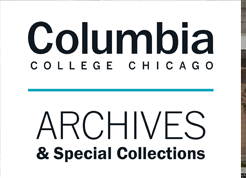Document Type
Article
Loading...
Publication Date
Fall 2009
Keywords
African Americans, Segregation, Mississippi, Carol Moseley-Braun, Lisa Brock, Chester A. Crocker, Cuba, Otis Cunningham, Angela Davis, Disinvestment South Africa, Martin Luther King Jr., Claude Lightfoot, Linda Murray, National Anti-imperialist Movement in Solidarity with South African Liberation, Ronald Reagan, Harold Rogers, S.C.L.C. Operation Breadbasket, Vietnam War, Harold Washington
Disciplines
Political Science | Political Theory | Race and Ethnicity | Race, Ethnicity and Post-Colonial Studies | Work, Economy and Organizations
Abstract
Length: 79 minutes
Oral history interview of Willie Williamson by Lisa Duke
Mr. Williamson begins by describing his childhood in Grenada, Mississippi, one of nine children, playing baseball and attending Sunday school, and growing up in the Jim Crow South. He recalls how he first learned of Apartheid through a food drive for South African refugees where they learned of the efforts to expel South Africa from the United Nations, which persuaded him and his wife to become involved. He explains how this led him and others to establish the National Anti-Imperialist Movement for Southern Africa Liberation (NAIMSAL). He describes how his experiences serving in the military and his time after returning from Vietnam motivated him to become an activist. He elaborates on the work that NAIMSAL did, drives for food, clothing, and diapers and other programs meant to offer support to the community. He recalls his reaction to Reagan’s election in 1980 in relation to both U.S. politics and South Africa. He mentions the first demonstration he participated in, for the United Farmer Workers. He talks about his involvement with the divestment efforts and his reaction to Harold Washington’s election. He explains why he cut back on his activism work in 1987 to spend more time with his children. He talks about on what he might have done differently, how his work affected his home and social life, how it continues to affect his life today. He concludes by reflecting on how modern activism is different than in decades past.
Recommended Citation
Duke, Lisa. "Interview with Willie Williamson" (Fall 2009). Oral Histories, Chicago Anti-Apartheid Collection, College Archives & Special Collections, Columbia College Chicago. http://digitalcommons.colum.edu/cadc_caam_oralhistories/30
Creative Commons License

This work is licensed under a Creative Commons Attribution-NonCommercial-No Derivative Works 4.0 International License.
Included in
Political Theory Commons, Race and Ethnicity Commons, Race, Ethnicity and Post-Colonial Studies Commons, Work, Economy and Organizations Commons



Biography and Comments
Mr. Williamson was born in 1948 in Grenada, Mississippi. He has been involved in a number of activist organizations, including the National Anti-Imperialist Movement for Southern Africa Liberation and the Chicago Alliance Against Racist and Political Repression. He was a teacher for Chicago Public Schools for many years before retiring. He is married to Dr. Mildred Williamson.
The interviewer conducted this oral history as part of his/her coursework for the Fall 2009 class, Oral History: The Art of the Interview. This interview supports the scope and content of the Chicago Anti-Apartheid Movement Collection at the College Archives & Special Collections department of Columbia College Chicago. Contact archives@colum.edu for more information and to view the collection.